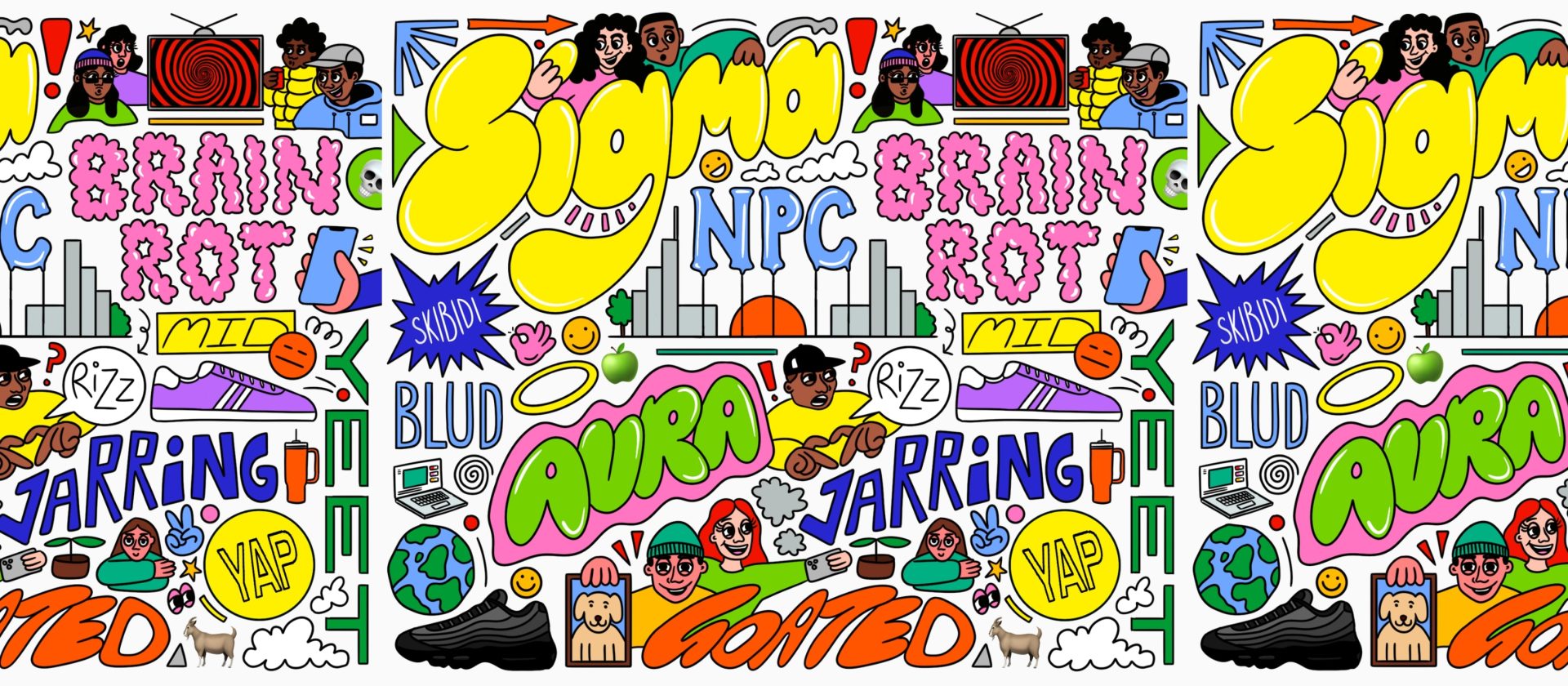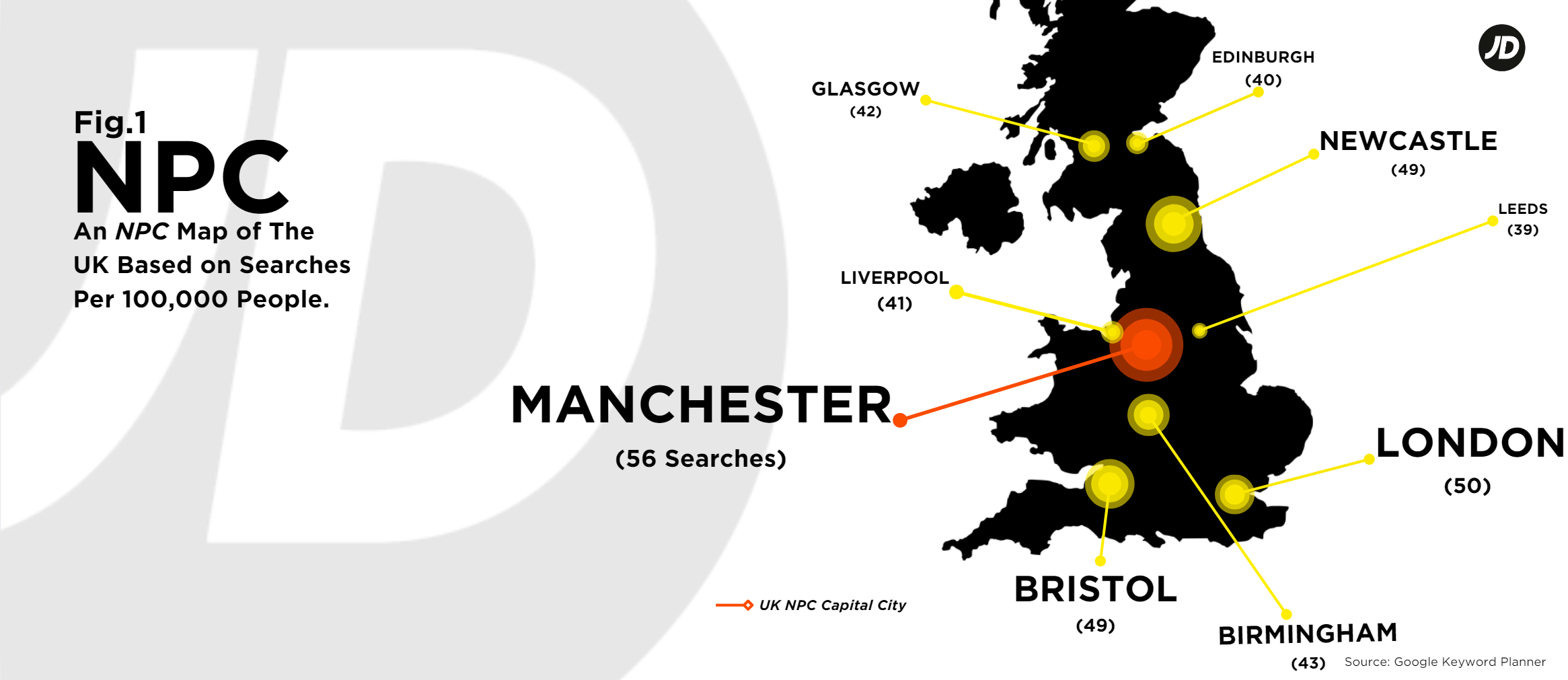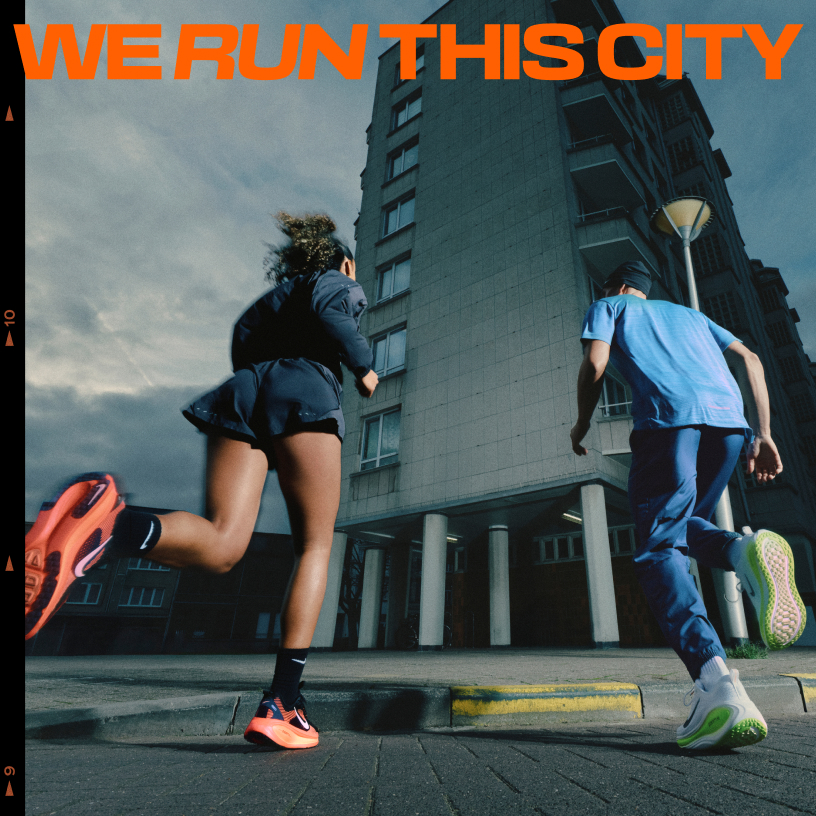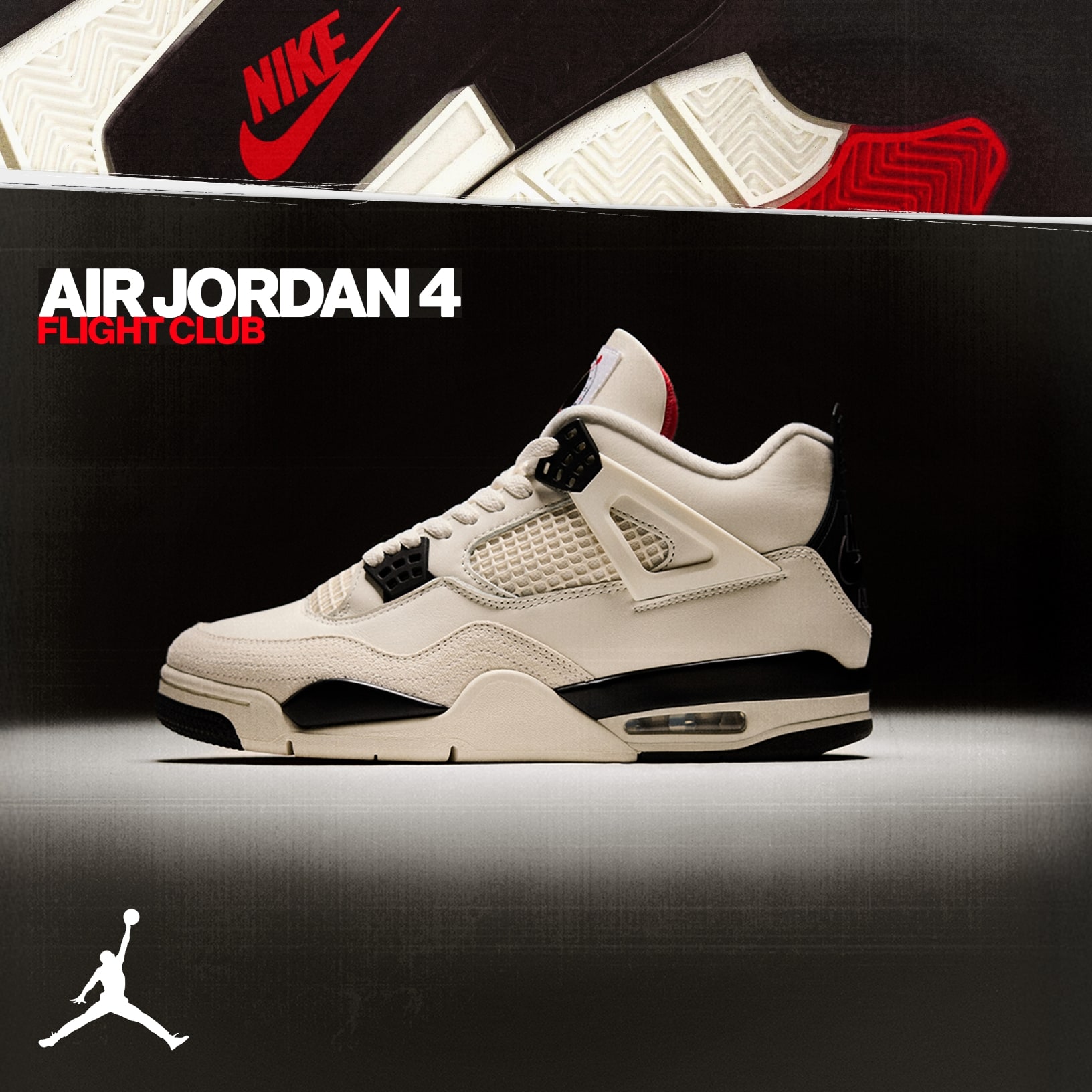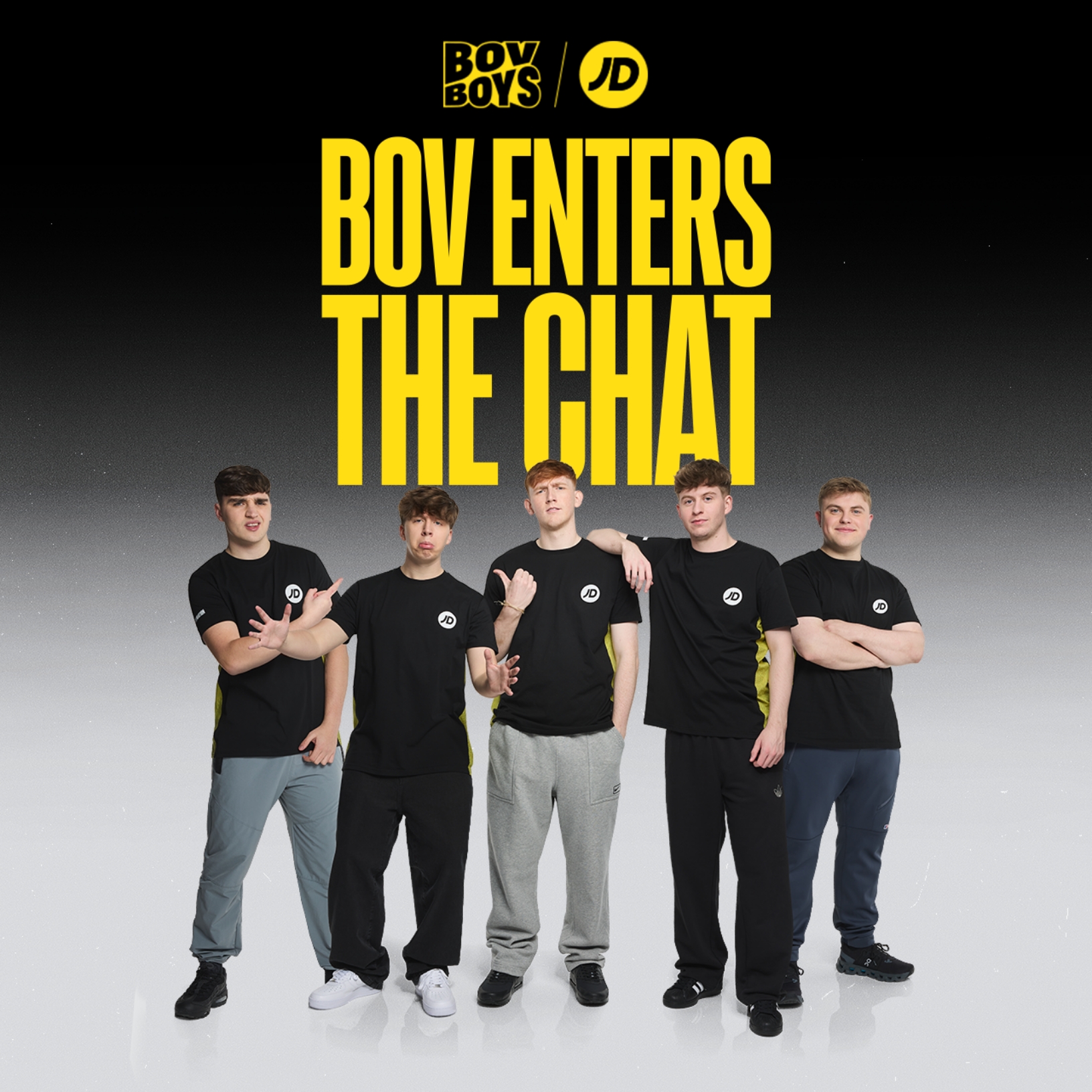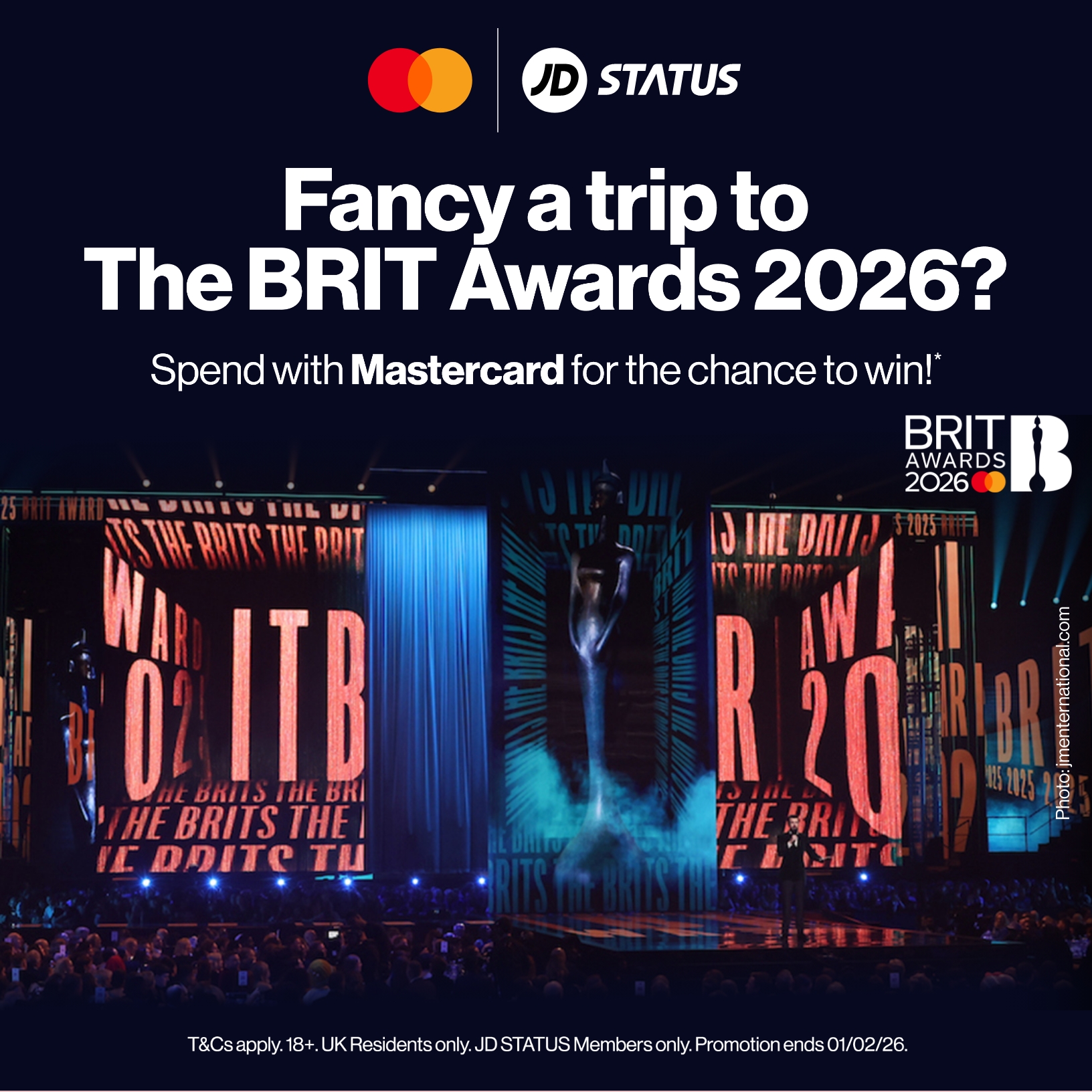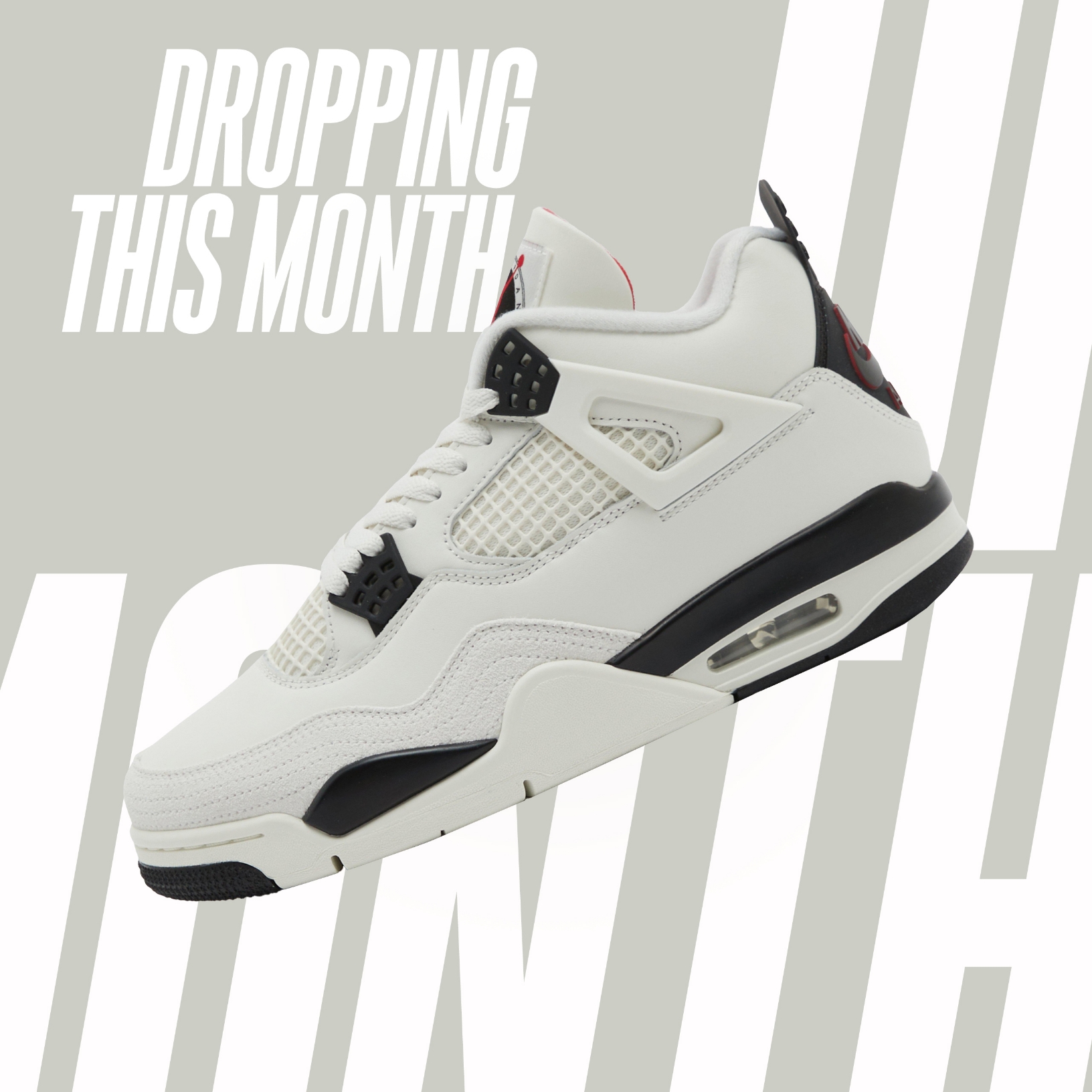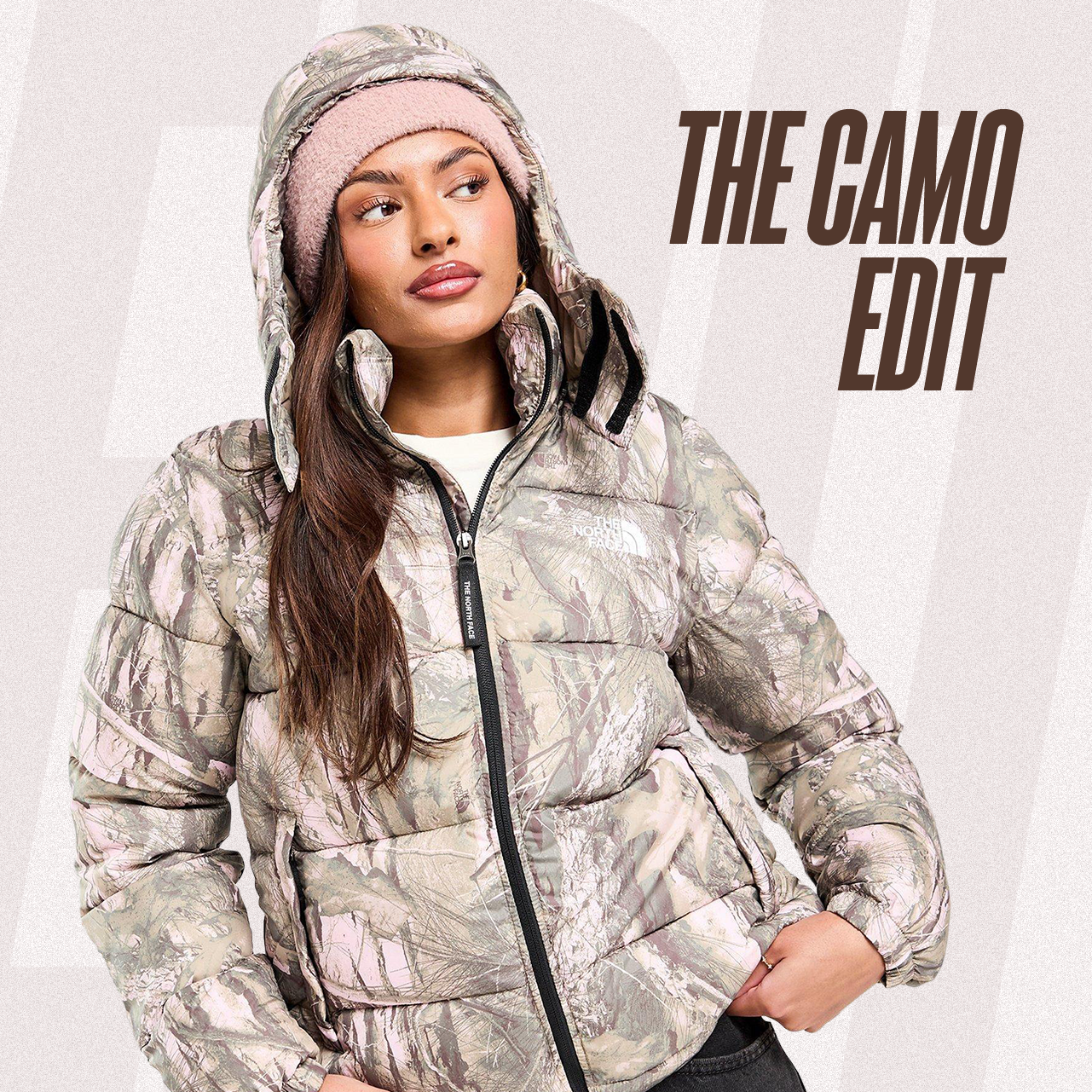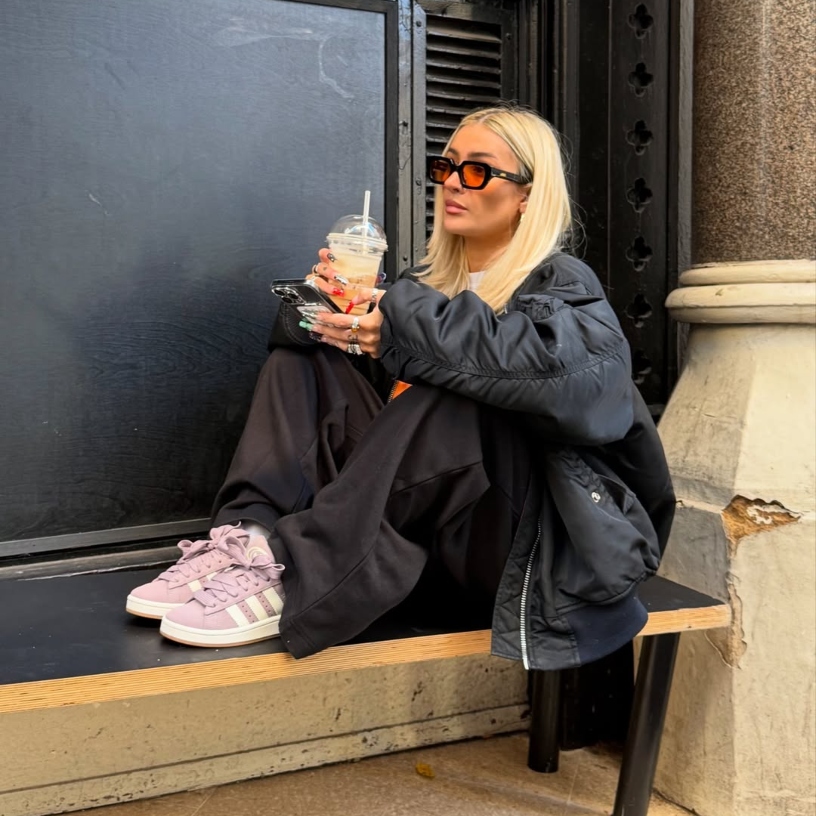Have you ever wondered where slang terms you’ve been using have come from?
In a digital age dominated by Gen Z, we have seen many new slang terms and phrases.
At JD, we wanted to know the most popular Gen Z slang terms circulating online, so we’ve done some digging using data to find out more.
We created a blend of data from Instagram, TikTok, and Google search to create an index that scores these terms out of 10.
What are the Most Popular Gen-Z Slang Words Right Now?

We started our search by finding out what slang words were being used most across Gen-Z.
Coming in at the top spot with an impressive 9.7/10 index score is the word ‘Sigma’. Sigma has Latin and Greek roots; it’s been used by youngsters across TikTok and other socials.
But what does it mean? Sigma nods to someone who is popular, successful but also highly independent.
Grabbing second position on the podium is ‘NPC’, bagging itself a score of 5/10.
Given the fact it originates from video games standing for ‘non playable character’, it’s probably not a surprise that the digital experts of Gen Z are going crazy for it.
NPC can be tracked back all the way to the ‘70s when videogames were first created.
It comes from the first edition of Dungeons & Dragons, where NPCs were fellow adventurers who couldn’t be controlled by players.
With that said, the term has seen newfound popularity amongst Gen Z, used as a word to mock someone who goes around unnoticed.
In third position with a score of 4.3/10 is ‘aura’. Just like ‘Sigma’, it was first used in Greek and Latin vocabulary meaning ‘breeze’ or ‘air’.
Fast-forwarding to the end of the 19th century, it was transformed into a term that was used to describe a subtle feeling around the body.
In Gen Z terms, it references someone who gives off a cool energy or vibe. It seems that members of Gen Z have also been using the phrase ‘aura points’ as a measure of how cool or confident someone is.
Which Gen-Z Slang Phrases are Most Popular in the UK?

Narrowing this search down to the UK, there is no change with the most popular slang word. Sigma once again takes number one spot, earning almost 167 searches per 100,000 people on the internet.
Following just behind for most-searched slang terms in the UK are ‘aura’ and ‘skibidi’, both sitting at 75 searches per 100,000 online.
Even by users of the word ‘skibidi’, it seems no one can exactly pinpoint one definition for it.
Some youngsters seem to use it to refer to something cool, and others use it as bad, so it’s a confusing one to say the least.
What we do know is that another common phrase, ‘skibidi toilet’, comes from a Georgian animated series created by Alexey Gerasimo.
It slowly became an internet meme, and the youth of Gen Z have been using the phrase ever since.
Dropping just below the podium spots, on 61 searches per 100,000 searches are the words ‘brat’, ‘mid’ and ‘rizz’.
Brat is used to define someone who is confidentially rebellious and bold. British singer and songwriter Charli XCX’s album ‘Brat’ had a hold on Gen Z, leading to the rise of the word.
Inspired by her album, Gen Z has taken this a step further by using the phrase ‘Brat Summer’. This refers to a way of life that mixes Y2K nostalgia, bratty confidence and an unpolished look.
Next up is ‘mid’. It seems that Gen Z slang users have shortened the word ‘middle’ to create this one, but we can’t be 100% sure on when this was introduced in slang vocabulary.
To describe something as mid would mean mediocre or average. It’s a pretty popular insult that gets used a lot online, particularly on platforms like TikTok.
Heading back to ‘rizz’, which is only about three years old! Rizz first burst onto the scene when popular American YouTube star, Kai Cenat, used it to describe his ability to impress women.
Since his comment, it has well and truly made a stance in Gen Z’s slang vocabulary and is often used to replace the word ‘flirting’.
Slang Popularity by City
We wanted to take a closer look and find out where abouts in the UK Gen Z slang was being most used.
It’s Belfast that seems to love Sigma the most. With 253 searches per 100,000 people, its next biggest admirers are Newcastle with 251 searches, and Bristol just below 235.
Over in the West Midlands, ‘aura’ gets searched 143 times per 100,000 people from Birmingham. They are closely followed by Newcastle on 112 and 104 in Manchester.
Heading back down to Bristol, ‘skibidi’ seems to be popular with Gen Z as it gets 113 searches, while Belfast and Manchester recorded 112 and 104 respectively.
It’s not clear exactly why these specific cities are searching for these words. However, Manchester’s double appearance on this list is less of a surprise as it uses the most slang in the UK according to research.
What’s Hot and What’s Not?
With many new terms amongst Gen Z, ‘rizz’ appears the be the fasting growing term, with its searches increasing by 12456% on Google over the last four years.
‘Brainrot’ searches increased by 7018%, while ‘what the sigma?’ gained an extra 5392% searches in the same time frame.
The term ‘brainrot’ means the negative of consuming too much digital content. It’s widely used within Gen Z, especially since the emergence of TikTok and Instagram reels.
It has also been named the 2024 Oxford word of the year, which has taken the crown over from the 2023 winner ‘rizz’.
On the flip side, the fastest declining words are ‘yeet’, falling 85% over the last four years and ‘jarring’ dropping 29% in search volume.
Conclusion
And That’s a Wrap!
That’s the end of our Gen Z slang analysis. Hopefully now you feel as clued up on Gen Z slang as we do.
If not, then maybe look through some of the latest styles from our stacked collection and up your aura points!
If you enjoyed this Gen-Z blog, be sure to explore our other articles, including our low-down on gifting and our Timberland style guide!
Also, be sure to head on over to JD to scroll all the latest drops in streetwear & trainers!
Methodology
The index looked at the number of hashtags per word on Instagram and TikTok and calculated the keyword search volume of each term.
Each category was given a normalised score between 0 and 1 for each metric, before an average normalised score across all three categories was created.
This was then multiplied by 10 to give a score out of 10 for each collection.



